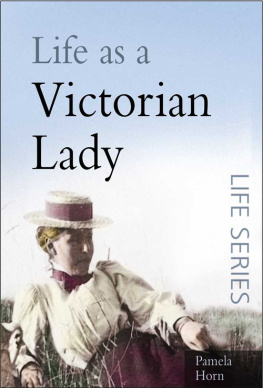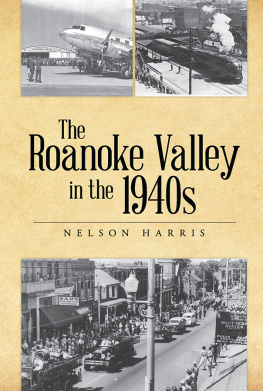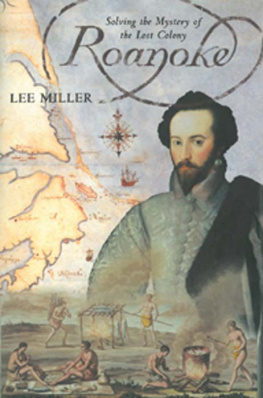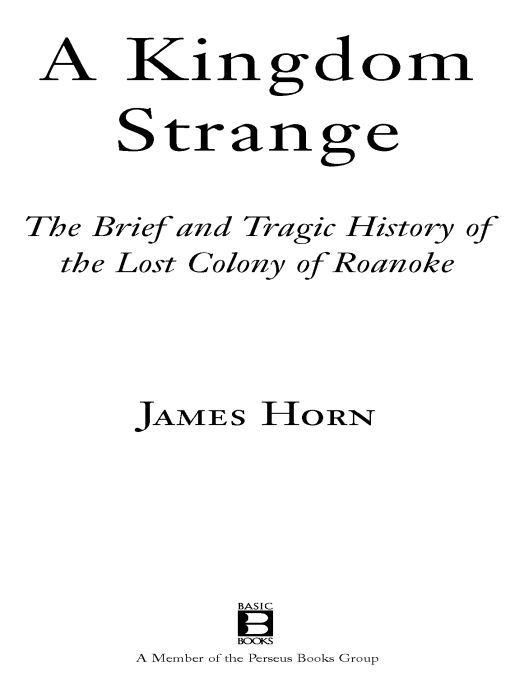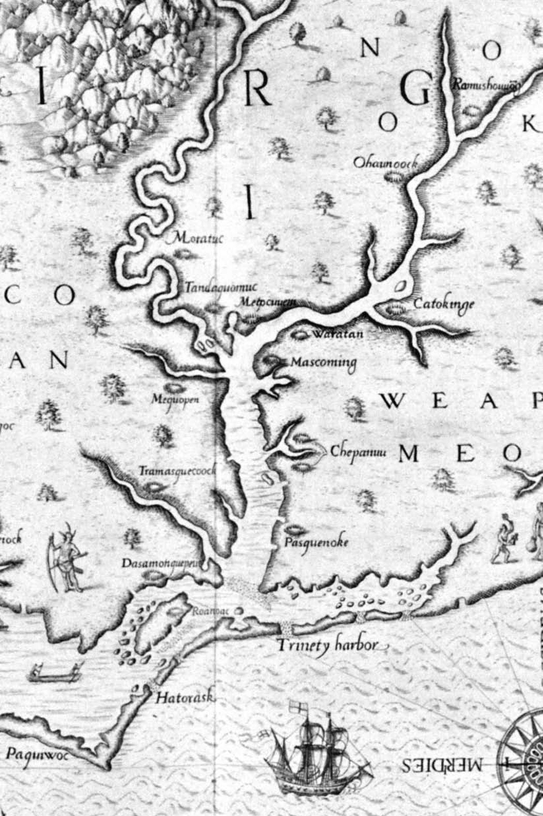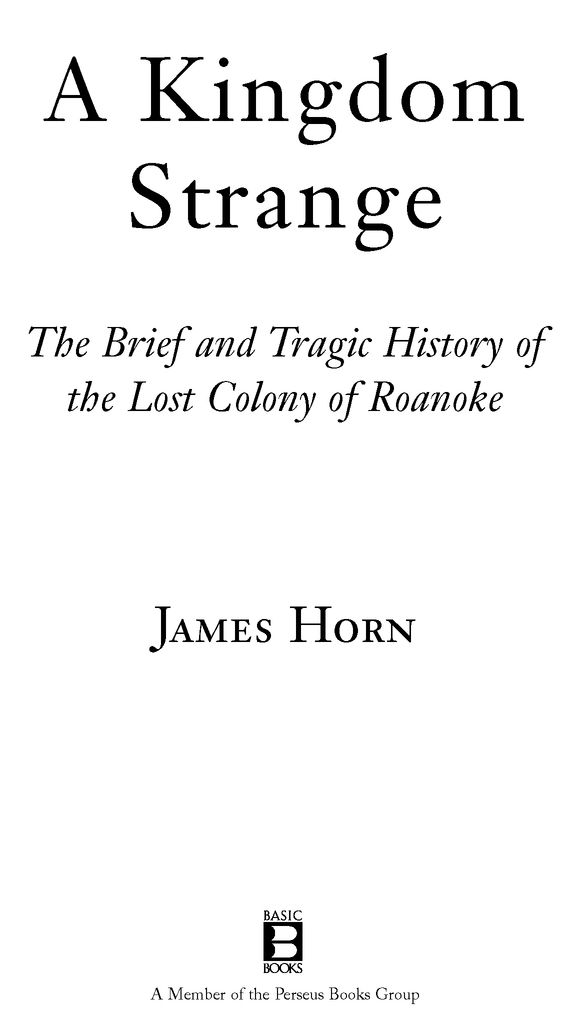Table of Contents
For Sally, Ben, and Liz
with love.
To seek new worlds for gold, for praise, for glory.
SIR WALTER RALEGH
PROLOGUE
JOHN WHITES LAST LETTER
On a cold winters day in 1593 in the small settlement of Newtown, County Cork, an old man stood at his window staring at the dark clouds gathered along the horizon. Sleet had begun to fall, washing the landscape a dreary gray and glazing the bare trees with a thin layer of ice. But John White did not notice the frozen rain or numbing chill that had seeped into the room; he had drifted to another time and place. He pictured himself onboard a ship, the wind filling the sails and the restless Atlantic stretching away as far as the eye could see. Once more, he tasted salt spray on his lips, felt the swell of the ocean beneath his feet, and heard the dull boom of breakers beating monotonously against a distant shore.
He had gone over what happened countless times before, had thought of little else in the long years since he left his family and countrymen on Roanoke Island to return to England for help. He remembered the last hours as if they were yesterday: his efforts to convince the settlers that as their leader it was his duty to remain, and the hope in their eyes when he finally agreed to go. No one else, they said, would be able to persuade Sir Walter Ralegh, the ventures sponsor, to send a relief expedition immediately. Reluctantly, with heartfelt farewells and a firm promise to be back within six months, he boarded his ship and sailed away.
How had things gone so badly wrong? They had set out in April 1587 for Virginia (as the colony was called for the virgin queen, Elizabeth I) with high hopes118 men, women, and children, many known to him personally, including his daughter, Eleanor, and her husband, Ananiasto plant a settlement in America. It had been a grand scheme, combining an ambition to exploit the natural bounty of the land with the imperial quest to stake a claim to the New Worldan English America that would serve as a counter to the power of Spain. In time, a city would arise on the shore of the Chesapeake Bay, they would build harbors from which their ships could plunder the Spanish in the Caribbean and along the Main and attack treasure fleets that carried the wealth of the New World to the Old.
There were treasures, too, waiting to be found in the unexplored lands of the interior where no European had set foot. Rumors abounded of fabulous wealth in mountains known only to Indians. With the English firmly established in America, Spains influence in the Indies would gradually wane; England would grow strong and eventually supplant the Spanish as lords of the world.
Perhaps, White pondered, he had allowed his enthusiasm for Virginia to get the better of his judgment. He recalled the exotic beauty of the land that had taken his breath away at first sight, the endless forests and wild profusion of trees, broad waterways and rivers teeming with life, strange animals and plants, and Indian peoples who had received the English in friendship and whose trust they had betrayed. The limitless potential of the New World that seemed within their grasp had somehow eluded them. Their attempt to found a great city had come to nothing. Perhaps the vision of an English America that he and Ralegh shared would never be more than a fantasy, a pipe dream.
And yet the men and women he had led to America were real enough. What of them? Despite his tireless efforts, he had taken not six months but three years to get back to Roanoke Island. By then they were gone. Unable to reach them, he would go to his grave bearing the guilt of his failure. His only comfort (small though it was) was his belief that the settlers were still alive on Croatoan Island with his Indian friend Manteo, or possibly in the interior, where they may have found a home with other peoples.
Sitting down to write a letter he had put off too long to his friend Richard Hakluyt, he reflected on his last voyage to Roanoke in 1590. He wrote about the hard-eyed mariners who cared nothing for him or the colony but only for profit, of months wasted in the West Indies while the privateers searched for valuable Spanish ships to plunder, and the foul weather that eventually forced his ship off the coast.
The voyage had been luckless and his hopes crushed. He could conclude only with an appeal to Gods grace: committing the relief of my... company the planters in Virginia, to the merciful help of the Almighty, whom I most humbly beseech to help & comfort them, according to his most holy will & their good desire. It was his final good-bye, an admission to himself that, exhausted in body and purse, he could no longer continue the search for them. Others might succeed where he had failed, but he could do no more.
He laid down his pen and returned to the window, looked into the fading light, and asked himself for the thousandth time: Why had he listened to them? Why had he left? Why was he not with them still, wherever they were?
TO ANNOY THE KING OF SPAIN
[W]hat an honorable thing
Both to the realm and to the king
To have had his dominion extending
There into so far a ground.
JOHN RASTELL
IN EARLY SEPTEMBER 1583 two small ships battled through mountainous seas in the mid-Atlantic. They were all that remained of a fleet commanded by Sir Humphrey Gilbert that had set out three months earlier from Plymouth, England, to take possession of North America in the name of Queen Elizabeth.
The storm had come on quickly: the ocean rising and falling, Edward Hayes, captain of the Golden Hind, later recalled, like hills and dales upon the land. But Gilbert, brave and reckless, paid little heed. Seated at the stern of the tiny frigate Squirrel, he read calmly from a book, as if to defy the elements raging around him. Sailing as close as he dared, Hayes called to Gilbert to join him on the Hind, the larger of the two ships, but Gilbert refused, saying he would not forsake his men, with whom he had endured so many perils.
As the storm worsened the Squirrel was repeatedly swamped by huge waves. Several times Hayes thought her lost, yet somehow each time she recovered. Gilbert signaled that all was well and cried out repeatedly above the howling wind the old adage: We are as near to heaven by sea as by land. Then, about midnight on Monday September 9, the lights of the frigate suddenly went out. The lookout of the Hind, peering into the darkness ahead, shouted that the frigate was cast away, which Hayes in his account of the voyage remarked was true, for in that instant the Squirrel and her crew were devoured and swallowed up of the Sea. Englands first attempt to establish a colony in North America had ended in failure.



